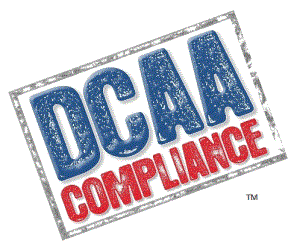January 2, 2014
Reading Armed Services Board of Contract Appeals (ASBCA) cases are one of the items clients pay me for in my hourly fees but is not normally an exciting part of my day. I try and keep my eyes from glazing over and continue to express gratitude that I did not attend law school.
There is a recurring theme in the Small Business Contractors that end up before the Board, a “my word versus theirs” theme. Sometimes it is obvious that the contractor is lying about statements allegedly made by someone in the government. Sometimes it is just as obvious that someone in the government made statements that cannot be supported.
The majority of the time it is difficult to determine which party, contractor or government, enjoys the faulty memory of the events.
I usually get involved after the telephone conversation or meeting. I worked with one client that spent millions of dollars on such a telephone conversation only to see the government deny the costs and watch the courts never make that determination (the contractor lost on a technicality).
Another client claimed a DCAA auditor called him on his cell phone over the weekend and offered to approve his company’s accounting system if they fired me as a consultant. As I dug into that one, I came to believe that it was the client who made the offer, not DCAA making the demand. I came to believe this after I terminated my relationship with the client upon realizing they were not really interested in compliance, only deals.
And sometimes it is simply stupid. I am sure there is a DCAA Supervisor trying to convince the OIG that he never told me that:
- He confirmed that his improperly developed finding meant that he demanded a policy and procedure that required employees to obtain approval from a supervisor before hitting the backspace key on a timesheet entry, or
- He asserted in an exit interview that when the FAR or DFARS did not cover an issue and when the guidance in the CAM did not quite fit, DCAA was required to stretch the CAM to cover the issue.
It is about accountability, not just for contractors but the government also. Part of the way we help bring DCAA out of their ongoing crisis is by setting standards for their behavior and ensuring consequences for their behavior. We need to hold them accountable as victims of their inconsistencies and as taxpayers who do require protection.
I am not saying record every conversation with the government. In many states one sided recording is illegal and the federal law follows the state laws.
What I am saying is document everything.
- When a government employee makes a decision or assertion by telephone or in person, record that by following up with an email or letter.
- Keep your emails and make them part of your contracting record.
- Bring other people into the conversation such as DCMA or the programs people.
This is nothing but being professional and should offend no one. I often tell DCAA during field work that I will follow up each segment with an email to them documenting what we had done, with attached backup documentation and copied to the client.
Even this does not always work. a DCAA supervisory, field auditor, and I once reconciled a public voucher to the client’s general ledger only to have DCAA later claim that it did not reconcile (despite the email and supporting documents). I am still trying to get that supervisor to, as we said in the Airborne, “pull his head out of his fourth point of contact”.
The vast majority of times, my relationship with DCAA is positive and the agency is full of dedicated government employees who are protecting taxpayers on a daily basis with little praise, pay, or support.
The vast majority of people do not commit murder or steal either, but there are laws and procedures we all follow to deal with those few individuals who do. We are talking about good business and protecting yourself.
